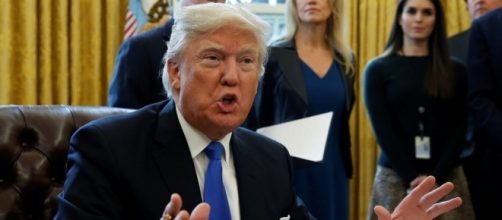Donald Trump’s election upset last November rested, in large part, on his appeals to American populism and nationalism. The policies he’s espoused in his first one hundred days continue to echo the “America First” rhetoric he used on the campaign trail. Trump is now considering an executive order that would withdraw the US from NAFTA, a trade agreement he’s repeatedly said harms US economic interests. Officials say a final draft of the report is in review, and the order could be disclosed as early as this week.
What NAFTA is
NAFTA, signed into law in 1994 under President Clinton, is a trade deal between the US, Mexico, and Canada.
The deal abolishes tariffs and allows free trade to flow between the three countries. In a speech last week in Kenosha, WI, Trump spoke of the economic havoc wrought on the US economy by NAFTA, “It’s been very, very bad for our companies and for our workers, and we’re going to make some very big changes or we are going to get rid of NAFTA once and for all.”
Heightened tensions between North American nations
Trump’s comments come at a time of tension between the US and its two neighbors. The US imposed a tariff on Canadian softwood lumber this week. Canada has also lowered its milk prices, which has created more competition for US dairy farmers. Tensions with Mexico remain high with Trump’s proposed border wall and his insistence that Mexico pay for it.
Trump’s pledges to abolish trade agreements he deemed detrimental to US interests began earlier this year. In January, Trump signed an executive order to withdraw the US from the Trans-Pacific Partnership (TPP), a trade alliance between twelve nations signed under the Obama administration. Trump considered the withdrawal a “great thing for the American worker.” Though the TPP had not passed congressional vetting yet, the partnership was intended to cut tariffs on imports and exports between the twelve countries.
It is not immediately evident what Trump hopes to gain through these considerations of withdrawing from NAFTA. Certainly Trump will force Canada and Mexico to renegotiate the deal in favor of US interests.
Trump may even withdraw from the deal altogether, though his administration has yet to formally announce this.
Trump’s rhetoric largely appealed to disenfranchised workers, particularly in the rustbelt states like Michigan and Ohio that lost jobs due to globalization and outsourcing. Only time will tell if Trump’s policies will help a slowly recovering economy work for a greater number of people.

